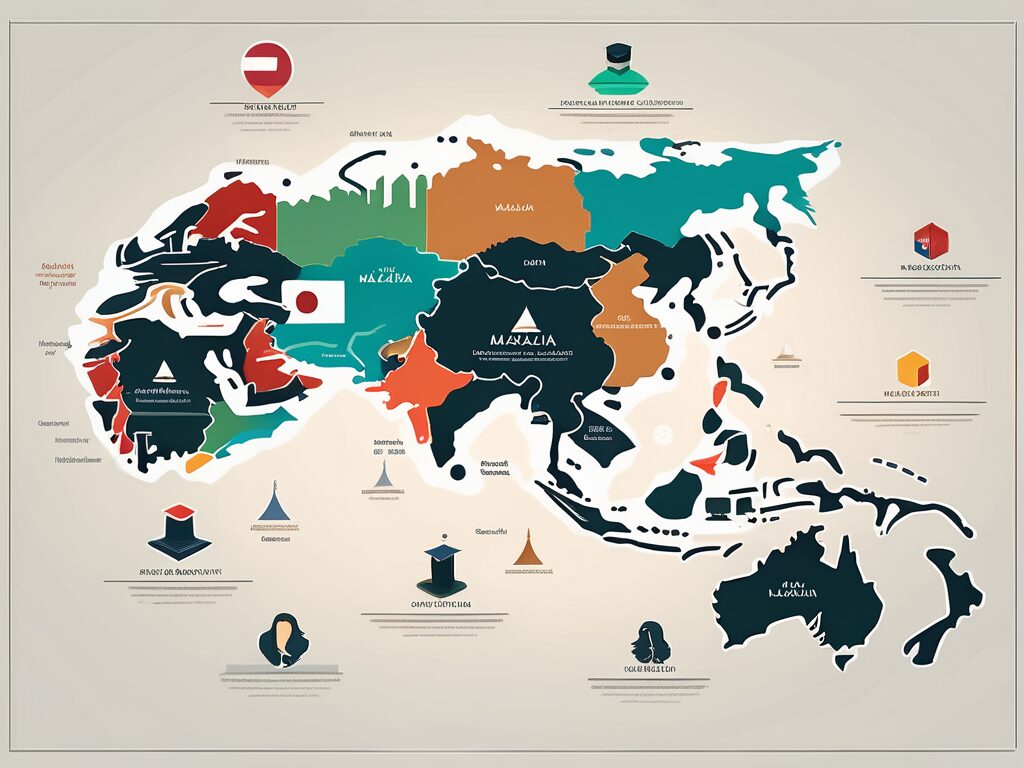Malaysia, a vibrant Southeast Asian nation, is known for its diverse culture, stunning landscapes, and a rich history. But beyond these, it’s also recognised for its commitment to education, particularly in the English language. This article delves into the various English proficiency levels in Malaysia, exploring the factors that influence these levels, the implications, and the efforts made to improve English proficiency in the country.
Understanding English Proficiency Levels
Before we delve into the specifics of English proficiency in Malaysia, it’s crucial to understand what we mean by ‘English proficiency levels’. Essentially, these levels are a measure of a person’s ability to use and understand the English language. They range from ‘beginner’ to ‘proficient’, with several stages in between, and are often assessed through standardised tests such as the TOEFL or IELTS.
These levels are not just about knowing vocabulary or grammar rules. They encompass the ability to use English in real-life situations, whether it’s reading a newspaper, writing an email, or engaging in conversation. In essence, they reflect how comfortably and effectively a person can communicate in English.
English Proficiency in Malaysia: An Overview
English has a unique place in Malaysia’s linguistic landscape. It’s not an official language, but it’s widely used in business, education, and daily life. This is a legacy of British colonial rule, which has left a lasting impact on the country’s language use.
However, the proficiency levels among Malaysians vary significantly. According to the EF English Proficiency Index, Malaysia ranks 27th out of 100 countries, placing it in the ‘moderate proficiency’ category. This means that while many Malaysians can understand and use English to some extent, there’s still room for improvement.
The Factors Influencing English Proficiency
Several factors influence English proficiency levels in Malaysia. One of the main ones is education. The Malaysian education system has seen several changes in its language policy over the years, swinging between Malay and English as the medium of instruction. This inconsistency has had an impact on English proficiency levels.
Social factors also play a role. In urban areas, where there’s more exposure to English through media, work, and social interactions, proficiency levels tend to be higher. In contrast, in rural areas, where such exposure is limited, proficiency levels are often lower.
The Implications of English Proficiency Levels
English proficiency levels have significant implications for individuals and the country as a whole. On a personal level, proficiency in English can open up opportunities for higher education and better jobs, both within Malaysia and internationally.
For the country, English proficiency is crucial for economic competitiveness. In a globalised world, the ability to communicate in English is often a prerequisite for attracting foreign investment and participating in international trade.
Efforts to Improve English Proficiency in Malaysia
Recognising the importance of English proficiency, the Malaysian government and various organisations have taken steps to improve English language skills in the country. These efforts range from policy changes in education to initiatives aimed at promoting English language use.
Changes in Education Policy
In recent years, the Malaysian government has made several changes to its education policy to enhance English proficiency. These include reintroducing English-medium schools and making English a compulsory subject in schools.
Additionally, the government has invested in teacher training to ensure that English teachers are well-equipped to teach the language effectively. It has also introduced initiatives to promote reading in English, such as the ‘Nilam’ programme, which encourages students to read and review English books.
Promoting English Language Use
Beyond the education system, efforts are also being made to promote English language use in daily life. For instance, the ‘Speak English at Work’ campaign encourages employees to use English in the workplace. Similarly, the ‘English in the Park’ initiative organises English language activities in public parks to make learning English fun and accessible.
These efforts, combined with the inherent motivation of Malaysians to learn English, are gradually helping to improve English proficiency levels in the country.
Conclusion
English proficiency levels in Malaysia reflect a complex interplay of historical, educational, and social factors. While there’s room for improvement, the commitment to enhancing English skills is clear. With continued efforts and a focus on effective language education, Malaysia is well on its way to raising its English proficiency levels.
So, whether you’re a language learner, an educator, or simply interested in the linguistic landscape of Malaysia, understanding these proficiency levels can provide valuable insights into the role of English in this dynamic and diverse country.
Elevate Your Teaching Career with IPGCE
As Malaysia continues to strive for higher English proficiency levels, the role of qualified educators becomes increasingly crucial. If you’re an educator aiming to enhance your qualifications and embrace international teaching opportunities, IPGCE is your gateway to success. Our International Postgraduate Certificate in Education (iPGCE) is designed to elevate your professional development, connect you with a global network of educators, and significantly improve your career prospects. With flexible online study options, the iPGCE is the practical solution for working teachers seeking to balance career advancement with ongoing commitments. Don’t let inadequate credentials limit your potential. Join the UK’s #1 Teacher Training Course and be part of the change driving English proficiency forward in Malaysia and beyond.

